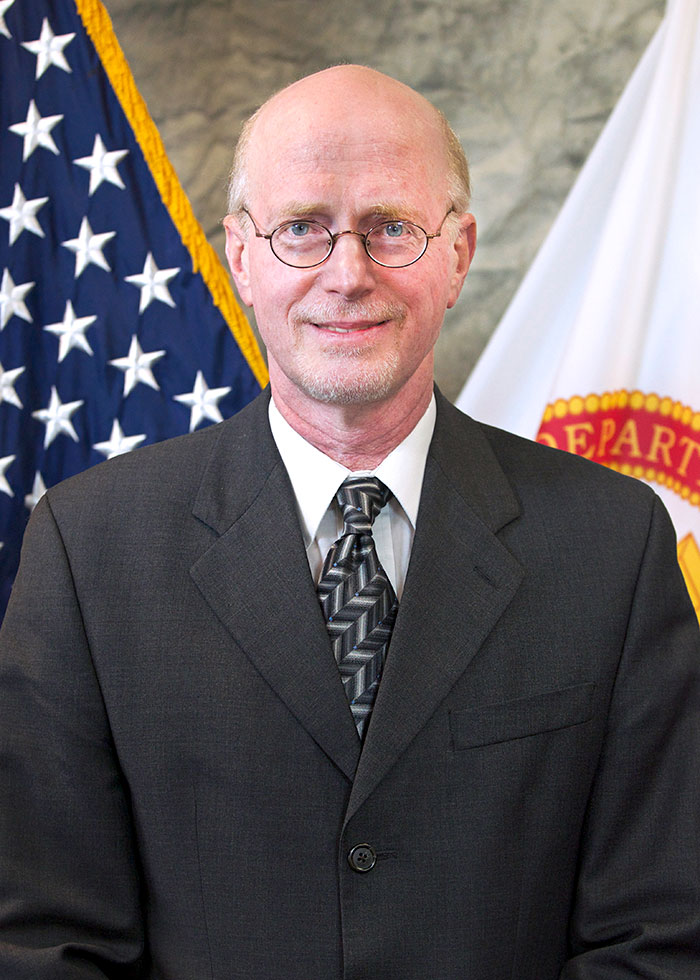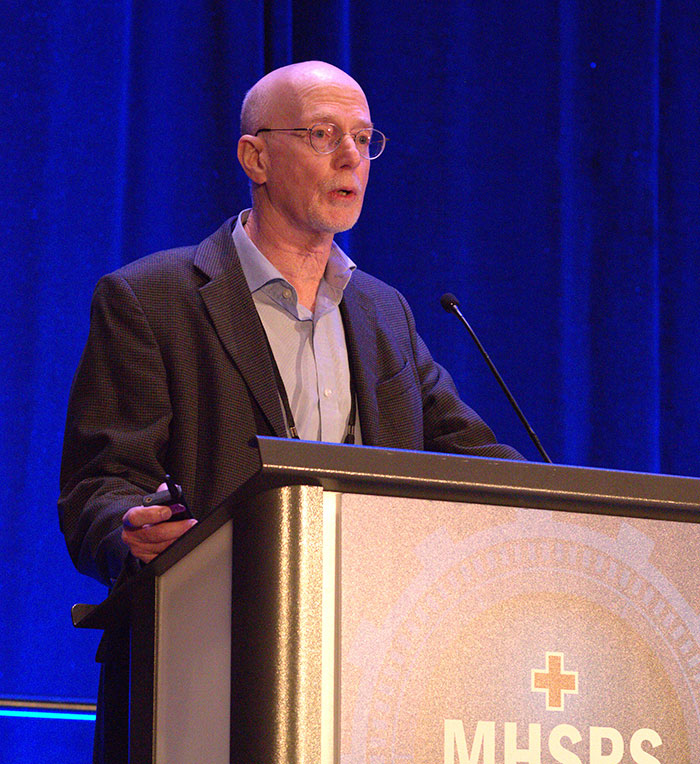Reifman Receives Third Presidential Rank Award

FORT DETRICK, Md. — Dr. Jaques Reifman, director and senior research scientist of the Biotechnology High-Performance Computing Software Applications Institute, has been selected to receive a 2024 Presidential Rank Award, making him perhaps the only Army senior executive to receive three such prestigious awards in recognition of his nearly 25 years of applying pioneering research in computational biology to the needs of the nation's Warfighters.
Awarded by the U.S. Office of Personnel Management, the PRA recognizes senior career executives with a sustained record of exceptional professional, technical, or scientific achievement recognized at a national or international level. The award is highly competitive; only 5% of eligible candidates are annually selected to receive the PRA.
"It is a tremendous honor to receive this award for a third time," says Reifman. "I am gratified that the dedication and the work that I put in every day to accomplish our mission is recognized at the highest levels. It is a source of external validation that what I have been able to do here has had an impact to the health and well-being of our Service Members."
Examples of Reifman's leadership cited in his award include BHSAI's successful development of an artificial intelligence algorithm for the triage of combat casualties by stratifying hemorrhage risk, which was incorporated into the APPRAISE-HRI tool, a first-of-its-kind smartphone application which the FDA cleared in April 2024. Other examples include the development of personalized AI-based predictive analytics models for use in applications as wide-ranging as optimizing Warfighter mental acuity and enhancing lethality, reducing the risk of heat illnesses, and identifying malaria infection much faster than currently approved tests.
Under Reifman's leadership, a multidisciplinary team of computational and experimental researchers established the mechanisms of blast-wave injury, which can help inform the development of personal protective equipment for Warfighter safety. He also led the development of a 3-D virtual human model to predict temperature throughout the body in response to extreme environmental conditions and exertional heat stress to reduce the risk of heat stroke and frostbite.
"I congratulate Dr. Reifman on his third Presidential Rank Award, which is a badge of distinction not only for him and his exceptional team, but for DHA R&D-MRDC as a DOD biomedical research enterprise," says Maj. Gen. Paula Lodi, DHA R&D-MRDC's commanding general. "Nearly a quarter century ago, when Dr. Reifman proposed the establishment of a high-performance computing organization to address gaps in force health protection, some saw it as a risky proposition. This latest award is a testament to his foresight and vision in that investment."

"Dr. Reifman has consistently demonstrated exceptional leadership in computational biology applications to force protection, blending profound technical knowledge with a forward-thinking vision that has significantly advanced biomedical research and innovation," says Col. Robert Carter III, DHA R&D-MRDC's chief of staff. "His ability to mentor emerging leaders and researchers is unparalleled, fostering an environment of intellectual curiosity and collaboration. Dr. Reifman's dedication to both advancing his field and cultivating the next generation of innovators exemplifies a rare and impactful leadership style."
Reifman is quick to share credit with his colleagues for the many accomplishments of BHSAI, which he established in 2004 and calls his "baby."
"The way I like to describe it is that the staff rows the canoe, I just point the canoe in the right direction," says Reifman. "I have certainly learned a lot from the staff; I just hope that I have inspired them to look for creative solutions, increase their scientific rigor, and think about problems in a logical and principled way."
BHSAI's high-risk high-reward interdisciplinary research accelerates the development of products that improve the medical protection and care of military personnel. Combining basic science research with experimental, computational, and AI technologies, BHSAI's efforts focus on prolonged casualty care, optimization of mental and physical performance, and prevention and treatment of diseases and non-battle injuries.
One of the reasons that BHSAI has remained in the forefront of its field is because of the researchers' ability to identify emerging trends and technologies in high-performance computing and embrace their potential for military medicine applications. Looking ahead to what's next on the horizon, Reifman says generative AI represents an important opportunity.
"The technology is moving exceedingly fast," says Reifman. "There are thousands of people, wonderful brains, working on it. The challenge is that it's hard to stay on the leading edge because the technology is moving so fast. It offers opportunities to address a number of military problems that we could not have solved before, in particular those involving natural language processing and image processing. Generative AI promises to be able to process the large amounts of data in natural language records and images much more quickly than a human can."
Reifman expects that AI systems will become vital components of future triage and diagnostic systems that will enable combat medics in the field, as well as clinicians behind the lines, to perform their duties much more swiftly and with a higher degree of accuracy. The important thing, he says, is to stay focused on outcomes.
"We do computations because we want to answer a research question," says Reifman. "Programs are funding us to solve military medical problems. And if, at the end of the research, there's no conclusion or no next steps, then we're not doing our job well."
 An official website of the United States government
An official website of the United States government
 ) or https:// means you've safely connected to the .mil website. Share sensitive information only on official, secure websites.
) or https:// means you've safely connected to the .mil website. Share sensitive information only on official, secure websites.


